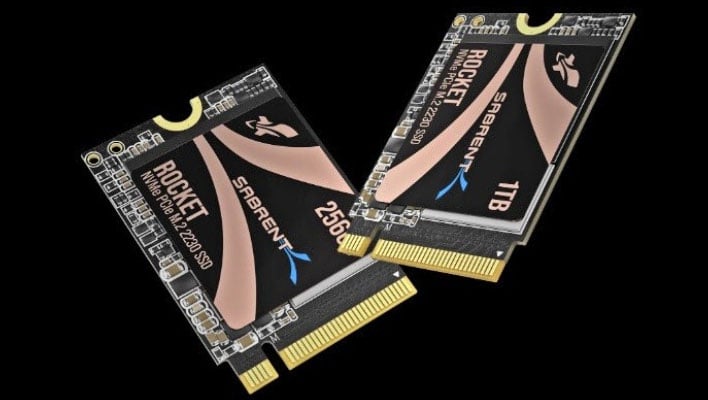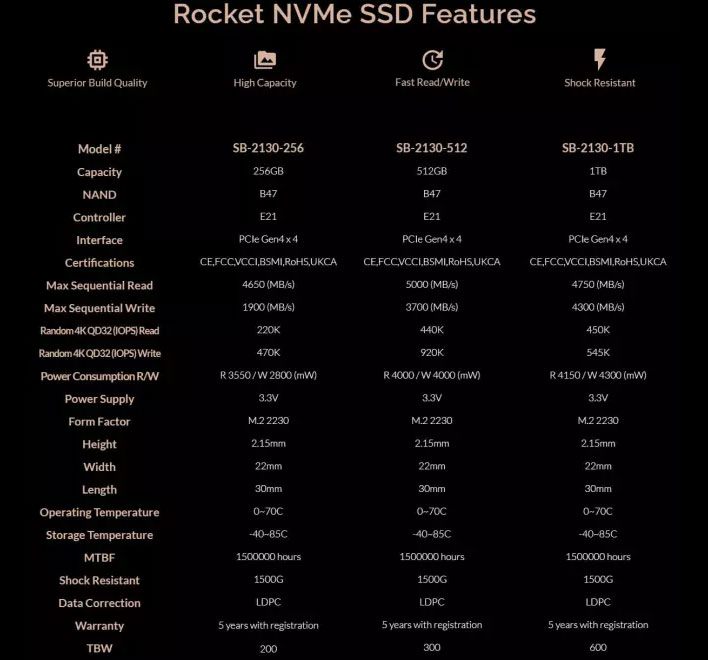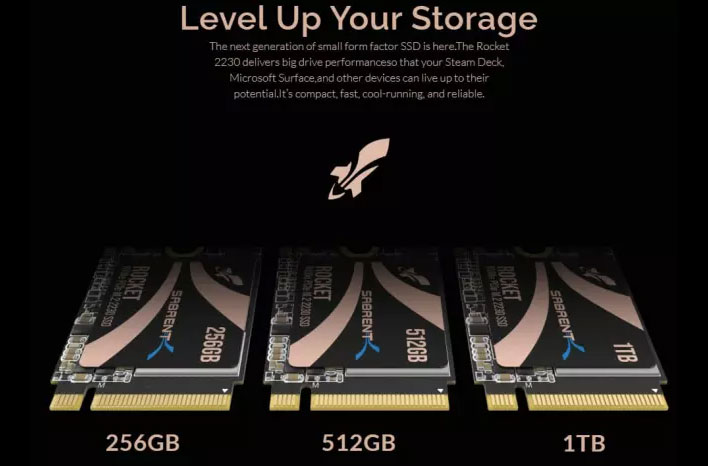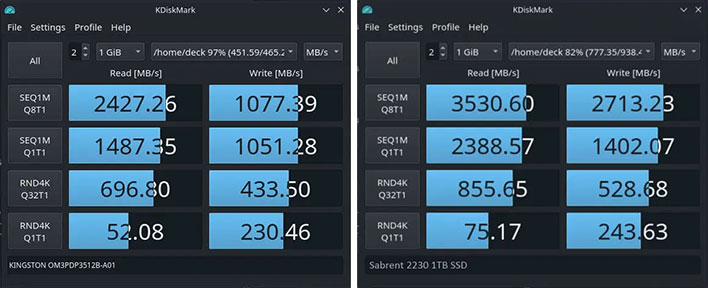Sabrent Unveils A Tiny 5GB/s Rocket 2230 SSD To Turbo Charge Steam Deck Consoles

Sabrent is launching a smaller version of its popular Rocket NVMe SSD so that it can bring the same blistering speed gains to compact configurations, including devices like Intel's smaller NUCs and Valve's Steam Deck console (with a caveat—more on that in a moment). As the name implies, Sabrent's Rocket 2230 ships in the M.2 2230 form factor, which is 22mm wide and 30mm long (hence the 2230 designation).
It's been a couple of year since Rocket released its full-sized Rocket SSD, and while the specifications between it and the new 2230 model are similar, they are not identical. Both utilize 3D triple-layer cell (TLC) NAND flash memory chips, but the Rocket 2230 series is equipped with Phison's newer PS5021-E21T controller, versus the PS5016-E16 on the full-size variant.

What really matters are the actual performance specs. To that end, Sabrent says the Rocket 2230 is rated deliver up to 5,000MB/s of sequential read performance and up to 4,300MB/s of sequential write performance. This varies by capacity, as show above, with Sabrent offer three storage sizes—256GB, 512GB, and 1TB. The middle option offers the fastest read speeds, though the 1TB model is not far behind at 4,750MB/s, along with boasting faster writes (4,300MB/s versus 3,700MB/s) and twice the capacity.
To take full advantage of the Rocket 2230's speed capabilities, you'd need a platform that supports PCI Express 4.0. That's notable because the Steam Deck is a PCI Express 3.0 system, which leaves some of the performance potential untapped.
Even so, Sabrent is clearly taking aim at Steam Deck owners. Sabrent apparently tested several Steam Deck models with different SSDs and found a broad range of results. The company then compared the performance to what its Rocket 2230 brings to the handheld gaming console.
Using KDiskMark, Sabrent found that a stock Steam Deck console topped out at around 2,427MB/s for reads and 1,077MB/s for writes. When swapping out the SSD for the 1TB Rocket 2230, read and write speeds jumped to around 3,530MB/s and 2,713MB/s, respectively. So according to Sabrent's internal testing, Steam Deck owners are looking at 44.4 percent faster read performance and a whopping 151.9 percent gain in write performance.
According to the folks at Enos Tech, Sabrent also claimed that it saw faster game loading times, as well as the Steam Deck being generally more responsive when swapping out the stock SSD for its Rocket 2230. No specific figures in relation to those claims have been shared, though.

One interesting thing about the Steam Deck is that after launch, it was discovered that Valve quietly made a spec change allowing for two drive configurations, one at PCIe Gen 3 x4 and one at PCIe Gen 3 x2. Despite some models shipping with half the bandwidth, Valve contends that there is no affect on gaming performance.
Some Steam Deck owners have also dabbled with modding their console with full-size M.2 2242 SSDs. This prompted one of the Steam Deck's designers to warn against going that route because full-size drives "draw more power and get hotter than what the Deck is designed for."
Sabrent has not yet said when the Rocket 2230 series will ship or how pricing will shake out.


